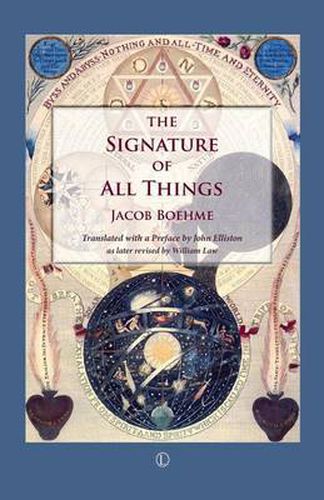Readings Newsletter
Become a Readings Member to make your shopping experience even easier.
Sign in or sign up for free!
You’re not far away from qualifying for FREE standard shipping within Australia
You’ve qualified for FREE standard shipping within Australia
The cart is loading…






‘It is not to be thought that the life of darkness is sunk in misery and lost as if in sorrow. There is no sorrowing. For sorrowing is a thing swallowed up in death, and death and dying are the very life of the darkness.’ Jacob Boehme’s mystical pantheism and dialectical conception of God - in which good and evil are rooted in one and the same being - soon brought him into conflict with Lutheran orthodoxy. It is in ‘The Signature of all Things’ (Signatura Rerum) that the tenets of Boehme’s theosophy are related in their greatest detail. Casting the reader into the vortex of his cosmological universe, Boehme’s endeavour to express a new sense of the human, divine and natural realms attains its apotheosis in his conception of the Ungrund, the uncertainty that precedes the divine will’s arousing itself to self-awareness. Challenging and rewarding in equal measure, this is a profound text, deeply influential upon devotional writers such as William Law, visionaries such as William Blake (informing The Marriage of Heaven and Hell) and, more recently, upon cultural production as diverse as the psychology of Carl Jung and Philip Pullman’s His Dark Materials trilogy.
$9.00 standard shipping within Australia
FREE standard shipping within Australia for orders over $100.00
Express & International shipping calculated at checkout
‘It is not to be thought that the life of darkness is sunk in misery and lost as if in sorrow. There is no sorrowing. For sorrowing is a thing swallowed up in death, and death and dying are the very life of the darkness.’ Jacob Boehme’s mystical pantheism and dialectical conception of God - in which good and evil are rooted in one and the same being - soon brought him into conflict with Lutheran orthodoxy. It is in ‘The Signature of all Things’ (Signatura Rerum) that the tenets of Boehme’s theosophy are related in their greatest detail. Casting the reader into the vortex of his cosmological universe, Boehme’s endeavour to express a new sense of the human, divine and natural realms attains its apotheosis in his conception of the Ungrund, the uncertainty that precedes the divine will’s arousing itself to self-awareness. Challenging and rewarding in equal measure, this is a profound text, deeply influential upon devotional writers such as William Law, visionaries such as William Blake (informing The Marriage of Heaven and Hell) and, more recently, upon cultural production as diverse as the psychology of Carl Jung and Philip Pullman’s His Dark Materials trilogy.